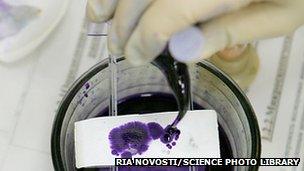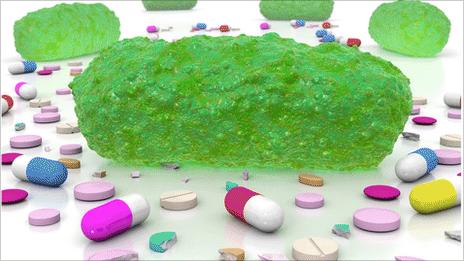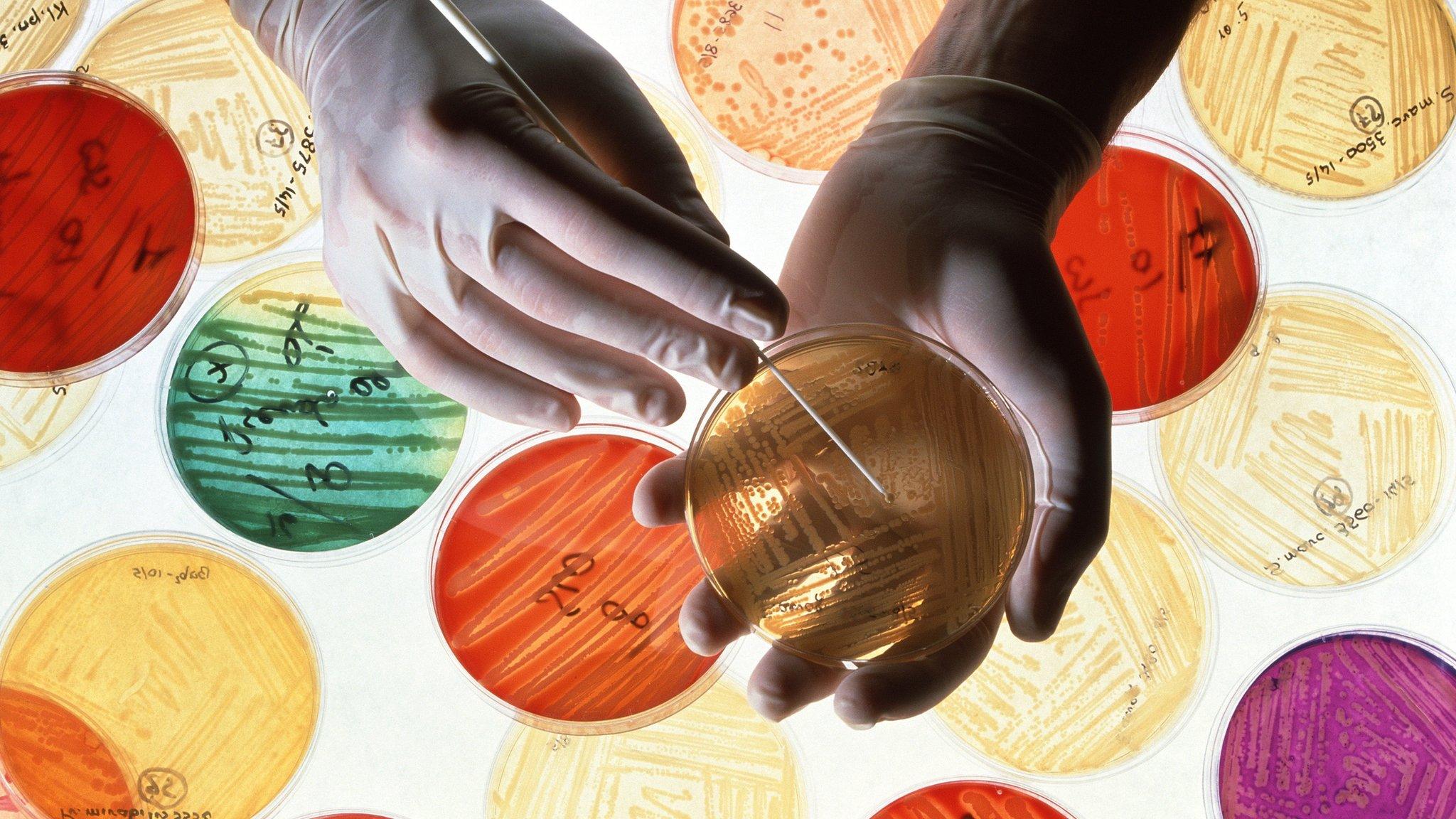Silver 'boost to antibiotic success'
- Published

Gram-negative bacterial infections can be difficult to treat
Adding silver to antibiotics makes them 10 to 1,000 times more effective at fighting infections, research suggests.
Silver has been used as an antimicrobial for centuries, but little has been known about how it works.
The new research suggests adding it to existing antibiotics could counteract the rise of drug-resistant microbes.
Experiments in mice showed the metal disrupts the biological processes of bacteria, making them more permeable to antibiotics, a US team reports.
Bacteria are adapting and finding ways to survive the effects of antibiotics.
According to England's chief medical officer, Prof Dame Sally Davies, antibiotics are losing their effectiveness at a rate that is both alarming and irreversible.
Silver acts against Gram-negative bacteria - one of the two main types of bacteria - which are particularly difficult pathogens to treat.
The research was led by Jose Ruben Morones-Ramirez of the Howard Hughes Medical Institute at Boston University.
He told the journal Science Translational Medicine, external: "This work shows that silver can be used to enhance the action of existing antibiotics against Gram-negative bacteria, thus strengthening the antibiotic arsenal for fighting bacterial infections."
Future studies will focus on testing how silver can be added to antibiotic injections or tablets for use in patients.
- Published16 November 2012

- Published19 November 2015
